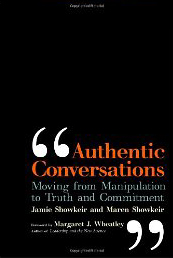We are so excited over the announcement of a new National Institute of Civil Discourse, affiliated with the University of Arizona in Tucson, where the shooting of Rep. Gabrielle Giffords, where six were killed and 14 injured, took place. We wanted to share this commentary from our friend Rush Kidder, who eloquently stated one of the dilemmas the Institute faces. How we use words is powerful, and until we own our own contributions to the divisive climate we have created, it will be impossible to begin to create a new future.
If you care about sound governance and social order, this has been a disconcerting week. Protesters took to the streets from Morocco to Yemen while bloody battles erupted in Libya. The Wisconsin legislature froze up as Democratic representatives fled the state to prevent passage of a much-contested union-busting bill. And there were thunderings of a federal government shutdown over a budget impasse.
Against that great wall of noise, a call for civil discourse might seem like a mouse squeak in a nor’easter. Instead, the launch of a new National Institute for Civil Discourse, announced over the weekend, is attracting surprising attention.
Part of the new institute’s allure is that former U.S. presidents George H. W. Bush and Bill Clinton are honorary co-chairs. Part of it comes from its affiliation with the University of Arizona, located near the site of the Tucson shootings that killed six and injured 13, including U.S. Rep. Gabrielle Giffords. Part of it comes from the ability of the institute to attract board members from across the political spectrum, including bedfellows as odd as Fox News anchor Greta Van Susteren and former U.S. secretary of state Madeleine Albright.
But part of its appeal, I suspect, comes from a nagging suspicion that a culture of incivility had something to do with those shootings, and that the January 8 tragedy was a wake-up call to think harder about the relationship of words to actions. On that latter point, the new institute is straddling a paradox.
Fred DuVal, the organization’s principal architect and a former co-chair of Giffords’ finance committee, says he drew inspiration for the institute from President Barack Obama’s comments at the memorial event after the tragedy. “At a time when our discourse has become so sharply polarized,” the president said, “it’s important for us to pause for a moment and make sure that we are talking with each other in a way that heals, not a way that wounds.” The new organization’s website notes that “this Institute is a response to that call.” Yet the website’s Q&A page responds to the question, “Are you blaming heated rhetoric for the shootings?” with the assertion, “Absolutely not.”
And therein lies the paradox. You can see why the institute took that line. There is no forensic or sociological evidence connecting alleged gunman Jared Loughner’s actions to any specific piece of polarizing rhetoric. Any hint, therefore, that irresponsible public discourse might have motivated him enrages the talk-show tribe. A strong denial on that point allows the institute to attract conservatives as well as liberals.
Yet the president’s artful ambiguity opens the window onto another view. The verb “wounds,” as Mr. Obama used it, can be read as mentally harms or as physically damages. Given the grisly context of this speech, these two meanings merge. Obama didn’t go to Tucson because the way that we were “talking to each other” caused people to be mentally wounded. He went there because bodies were lying around a Safeway parking lot. Seen that way, the logic behind the institute’s founding is clear: Words can heal or wound, and in Tucson they wounded fatally. Our “sharply polarized” discourse has played a role in this wounding, and a new institute is required to address this problem.
That logic will be rejected by those in the media whose livelihood depends on attracting audiences through a discourse of rage and incivility. To survive that antagonism, the institute will need the moral courage to be both credible and relevant. Credibility requires it to talk not just in broad generalities about how incivility “wounds” us, but to speak in sharp specifics about what’s wrong with diatribe, invective, hate speech, and cruelly personal attacks. Relevance will require the institute to point out the problem that it is confronting — the connection between verbal attack and the ills that plague our democracy, up to and including physical violence and assassination. To do anything less will be to ignore the nation’s plea for help as it struggles to understand how public discourse creates action either for good (through Facebook on the streets of Egypt) or for bad (through Twitter in the hands of school bullies).
If the institute “absolutely” denies any possibility that a culture of “heated rhetoric” played a role in the Tucson shootings, it will find itself living with a proverbial elephant in the room. If, however, it faces up to that challenge and digs deeply enough, it will discover the core moral values that hold us together. It then will need to teach us how to shape our discourse around those values. Doing so, it may prove to be the mouse that trumps the blizzard, reminding us that even elephants are frightened off by mice.
http://www.globalethics.org/newsline/2011/02/22/making-civility-matter/


 maren
maren